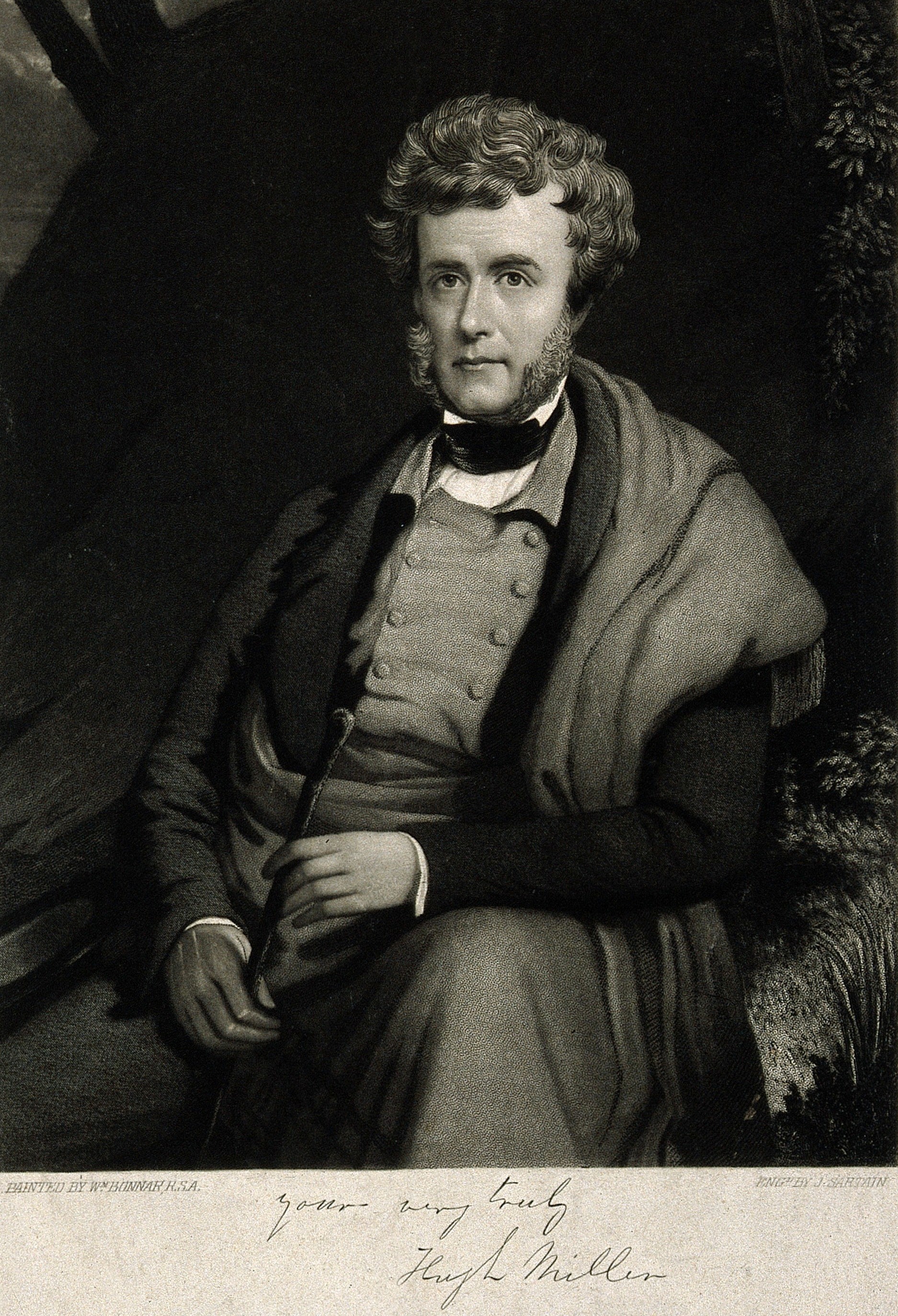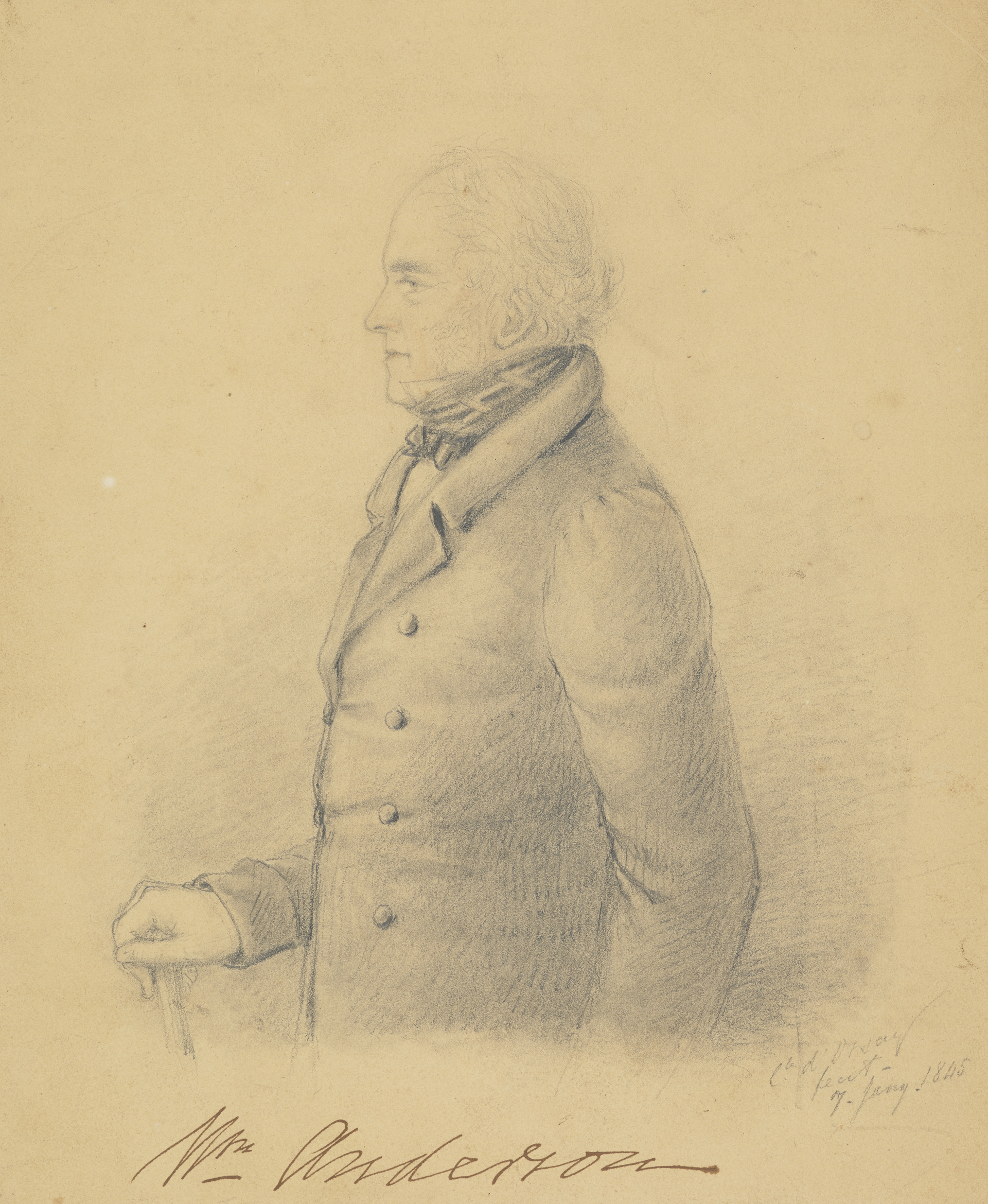|
Edinburgh Witness
''Witness'' was an evangelical Evangelicalism (), also called evangelical Christianity or evangelical Protestantism, is a worldwide Interdenominationalism, interdenominational movement within Protestantism, Protestant Christianity that affirms the centrality of being "bor ... newspaper established in 1840 by Scotland, Scottish geologist and writer Hugh Miller. Robert Smith Candlish, Robert Candlish was instrumental in establishing Miller as the editor. He continued to edit the paper at an office on the Royal Mile in Edinburgh until his suicide in December 1856. He was the principal contributor to the publication, averaging over 10,000 words a week. William Anderson (Scottish writer), William Anderson was sub-editor as was James Aitken Wylie. References Presbyterianism in Scotland Newspapers established in 1840 Christian magazines 1840 establishments in Scotland {{Scotland-newspaper-stub ... [...More Info...] [...Related Items...] OR: [Wikipedia] [Google] [Baidu] |
Evangelism
In Christianity, evangelism (or witnessing) is the act of preaching the gospel with the intention of sharing the message and teachings of Jesus Christ. Christians who specialize in evangelism are often known as evangelists, whether they are in their home communities or living as missionaries in the field, although some Christian traditions refer to such people as ''missionaries'' in either case. Some Christian traditions consider evangelists to be in a leadership position; they may be found preaching to large meetings or in governance roles. In addition, Christian groups who encourage evangelism are sometimes known as evangelistic or ''evangelist''. Etymology The word ''evangelist'' comes from the Koine Greek word (transliterated as ''euangelion'') via Latinised ''evangelium'' as used in the canonical titles of the Four Gospels, authored by (or attributed to) Matthew, Mark, Luke, and John (also known as the Four Evangelists). The Greek word originally meant a reward given ... [...More Info...] [...Related Items...] OR: [Wikipedia] [Google] [Baidu] |
Scotland
Scotland (, ) is a country that is part of the United Kingdom. Covering the northern third of the island of Great Britain, mainland Scotland has a border with England to the southeast and is otherwise surrounded by the Atlantic Ocean to the north and west, the North Sea to the northeast and east, and the Irish Sea to the south. It also contains more than 790 islands, principally in the archipelagos of the Hebrides and the Northern Isles. Most of the population, including the capital Edinburgh, is concentrated in the Central Belt—the plain between the Scottish Highlands and the Southern Uplands—in the Scottish Lowlands. Scotland is divided into 32 administrative subdivisions or local authorities, known as council areas. Glasgow City is the largest council area in terms of population, with Highland being the largest in terms of area. Limited self-governing power, covering matters such as education, social services and roads and transportation, is devolved from the Scott ... [...More Info...] [...Related Items...] OR: [Wikipedia] [Google] [Baidu] |
Geologist
A geologist is a scientist who studies the solid, liquid, and gaseous matter that constitutes Earth and other terrestrial planets, as well as the processes that shape them. Geologists usually study geology, earth science, or geophysics, although backgrounds in physics, chemistry, biology, and other sciences are also useful. Field research (field work) is an important component of geology, although many subdisciplines incorporate laboratory and digitalized work. Geologists can be classified in a larger group of scientists, called geoscientists. Geologists work in the energy and mining sectors searching for natural resources such as petroleum, natural gas, precious and base metals. They are also in the forefront of preventing and mitigating damage from natural hazards and disasters such as earthquakes, volcanoes, tsunamis and landslides. Their studies are used to warn the general public of the occurrence of these events. Geologists are also important contributors to climate ch ... [...More Info...] [...Related Items...] OR: [Wikipedia] [Google] [Baidu] |
Hugh Miller
Hugh Miller (10 October 1802 – 23/24 December 1856) was a self-taught Scottish geologist and writer, folklorist and an evangelical Christian. Life and work Miller was born in Cromarty, the first of three children of Harriet Wright (''bap''. 1780, ''d''. 1863) and Hugh Miller (''bap''. 1754, ''d''. 1807), a shipmaster in the coasting trade. Both parents were from trading and artisan families in Cromarty. His father died in a shipwreck in 1807, and he was brought up by his mother and uncles. He was educated in a parish school where he reportedly showed a love of reading. It was at this school that Miller was involved in an altercation with a classmate in which he stabbed his peer's thigh. Miller was subsequently expelled from the school following an unrelated incident. At 17 he was apprenticed to a stonemason, and his work in quarries, together with walks along the local shoreline, led him to the study of geology. In 1829 he published a volume of poems, and soon afterwards ... [...More Info...] [...Related Items...] OR: [Wikipedia] [Google] [Baidu] |
Robert Smith Candlish
Robert Smith Candlish (23 March 1806 – 19 October 1873) was a Scottish minister who was a leading figure in the Disruption of 1843. He served for many years in both St. George's Church and St George's Free Church on Charlotte Square in Edinburgh's New Town. Life He was born at 11 West Richmond Street in Edinburgh, the son of James Candlish (1760-1806), a lecturer in Medicine who died soon after he was born. He was raised by his mother, Jane Smith (1768-1854). She moved to Glasgow soon after her husband's death and survived by running a boarding house at 49 Virginia Street. The building was then a new building. It survives but is now a little dilapidated. In 1820, he began studying Divinity at Glasgow University, where he graduated in 1823. During the years 1823–1826 he went through the prescribed course at the divinity hall, then presided over by Rev Dr Stevenson McGill. On leaving, he accompanied a pupil as private tutor to Eton College, where he stayed two years. In 182 ... [...More Info...] [...Related Items...] OR: [Wikipedia] [Google] [Baidu] |
Royal Mile
The Royal Mile () is a succession of streets forming the main thoroughfare of the Old Town of the city of Edinburgh in Scotland. The term was first used descriptively in W. M. Gilbert's ''Edinburgh in the Nineteenth Century'' (1901), describing the city "with its Castle and Palace and the royal mile between", and was further popularised as the title of a guidebook by R. T. Skinner published in 1920, "''The Royal Mile (Edinburgh) Castle to Holyrood(house)''". The Royal Mile runs between two significant locations in the royal history of Scotland: Edinburgh Castle and Holyrood Palace. The name derives from it being the traditional processional route of monarchs, with a total length of approximately one Scots mile, a now obsolete measurement measuring 1.81km. The streets which make up the Royal Mile are (west to east) Castlehill, the Lawnmarket, the High Street, the Canongate and Abbey Strand. The Royal Mile is the busiest tourist street in the Old Town, rivalled only ... [...More Info...] [...Related Items...] OR: [Wikipedia] [Google] [Baidu] |
Edinburgh
Edinburgh ( ; gd, Dùn Èideann ) is the capital city of Scotland and one of its 32 Council areas of Scotland, council areas. Historically part of the county of Midlothian (interchangeably Edinburghshire before 1921), it is located in Lothian on the southern shore of the Firth of Forth. Edinburgh is Scotland's List of towns and cities in Scotland by population, second-most populous city, after Glasgow, and the List of cities in the United Kingdom, seventh-most populous city in the United Kingdom. Recognised as the capital of Scotland since at least the 15th century, Edinburgh is the seat of the Scottish Government, the Scottish Parliament and the Courts of Scotland, highest courts in Scotland. The city's Holyrood Palace, Palace of Holyroodhouse is the official residence of the Monarchy of the United Kingdom, British monarchy in Scotland. The city has long been a centre of education, particularly in the fields of medicine, Scots law, Scottish law, literature, philosophy, the sc ... [...More Info...] [...Related Items...] OR: [Wikipedia] [Google] [Baidu] |
Suicide
Suicide is the act of intentionally causing one's own death. Mental disorders (including depression, bipolar disorder, schizophrenia, personality disorders, anxiety disorders), physical disorders (such as chronic fatigue syndrome), and substance abuse (including alcoholism and the use of and withdrawal from benzodiazepines) are risk factors. Some suicides are impulsive acts due to stress (such as from financial or academic difficulties), relationship problems (such as breakups or divorces), or harassment and bullying. Those who have previously attempted suicide are at a higher risk for future attempts. Effective suicide prevention efforts include limiting access to methods of suicide such as firearms, drugs, and poisons; treating mental disorders and substance abuse; careful media reporting about suicide; and improving economic conditions. Although crisis hotlines are common resources, their effectiveness has not been well studied. The most commonly adopted metho ... [...More Info...] [...Related Items...] OR: [Wikipedia] [Google] [Baidu] |
William Anderson (Scottish Writer)
William Anderson (1805–1866) was a Scottish miscellaneous writer in the departments of history, biography, and science. He was born at Edinburgh and educated there, and placed in a lawyer's office. As an author he published ''Poetical Aspirations''; ''Landscape Lyrics''; ''Popular Scottish Biography''; ''Treasury of Nature, Science, and Art'' and an extensive work widely known as ''The Scottish Nation''. He also assisted for some time in managing Aberdeen Journal, Witness, and Daily Mail newspapers. He died, aged 61. Biography Anderson was born in Edinburgh 10 December 1805. His father was supervisor of excise at Oban, and his mother the daughter of John Williams, author of the 'Natural History of the Mineral Kingdom.' He was thus a younger brother of John Anderson (genealogist, 1789–1832), the historian of the house of Hamilton. After receiving a good education in Edinburgh he became clerk to a Leith merchant, but subsequently entered a lawyer's office in Edinbu ... [...More Info...] [...Related Items...] OR: [Wikipedia] [Google] [Baidu] |
James Aitken Wylie
James Aitken Wylie (9 August 1808 – 1 May 1890) was a Scottish historian of religion and Presbyterian minister. He was a prolific writer and is most famous for writing ''The History of Protestantism''. Life Wylie was born on 9 August 1808 in Kirriemuir to James Wylie and Margaret Forrest. His name-father, Rev James Aitken, was an Auld Licht Anti-burgher minister in the Secession Church. Wylie was educated at Marischal College, University of Aberdeen, where he studied for three years before transferring to St Andrews University to study under Rev Dr Thomas Chalmers. He followed his name-father's example, entering the Original Secession Divinity Hall, Edinburgh in 1827. He was ordained at the Secessionist Church in Dollar, Clackmannanshire, in 1831. In 1846 he left Dollar to become sub-editor of the Edinburgh religious newspaper the ''Witness'', under Hugh Miller. In 1852, after he had (with the majority of the United Original Secession Church) joined the Free Church ... [...More Info...] [...Related Items...] OR: [Wikipedia] [Google] [Baidu] |







.jpg)
